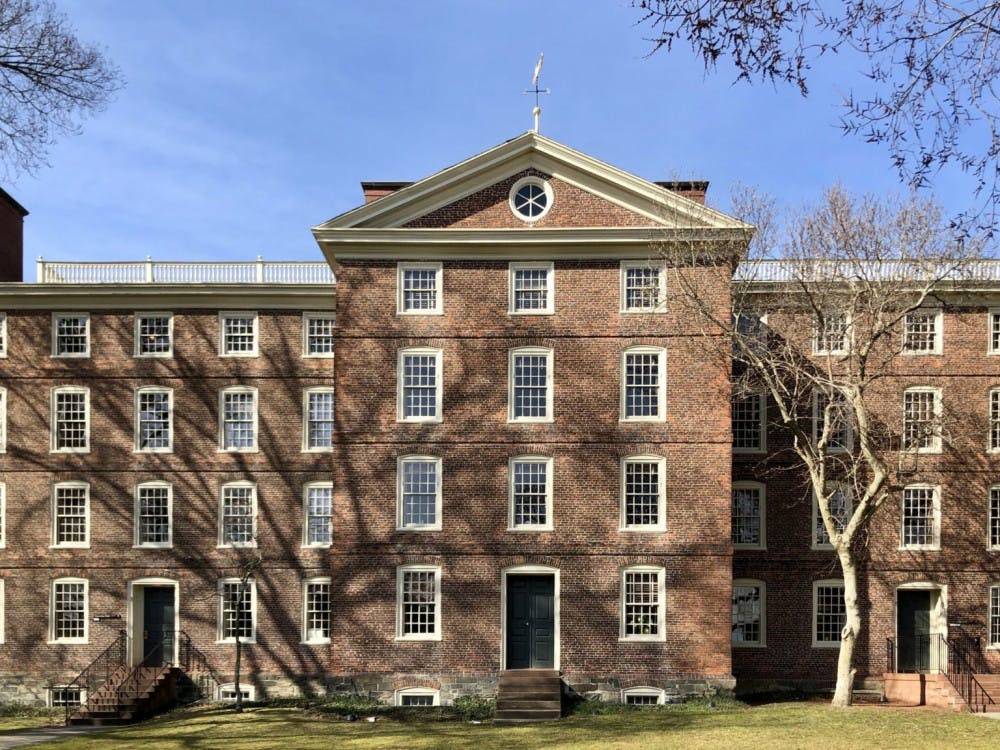The Office of the Vice President for Research announced 16 recipients of the 2021 Richard B. Salomon Faculty Research Awards Mar. 10. The awards, named in honor of Chancellor of Brown 1977 to 1988 Richard Salomon, “recognize excellence in scholarship,” wrote Vice President for Research Jill Pipher in an email to The Herald.
The awards provide up to $15,000 in funding to each accepted project, and preference is given to junior faculty, Pipher wrote. All disciplines are eligible for the funding, but faculty conducting research in the humanities and social sciences more frequently receive the award, she added.
Three of the 16 award recipients spoke to The Herald about their funded projects.
A political biography of Tito Princilliano Achong
Professor and Chair of Africana Studies Brian Meeks is working on a political biography of Tito P. Achong. Achong was an anti-colonialist and the mayor of Port of Spain, Trinidad, Meeks said. “He was also my grandfather.”
Meeks hopes to explore several aspects of Achong’s life, career, ideology and legacy. “I also want to examine what it means to write about a family member … how do you keep a certain scholarly distance while still doing that person justice,” Meeks said.
With the Salomon Award funding, Meeks plans to travel to places, such as Knoxville, TN — where Achong attended a historically Black college — and Trinidad, to conduct archival research.
Computational models to study COVID-19 related blood clots
Assistant Professor of Research in Applied Mathematics He Li is working on a computational model to describe the mechanisms behind blood clot formation. According to Li, Current data suggests that patients with COVID-19 are prone to experience blood clotting. The data also suggests that these COVID-19-associated blood clots can lead to patients developing cardiovascular complications, he added.
Li’s computational model uses 25 differential math equations and simulations to describe the mechanisms leading to blood clots. He hopes the model “can be used to investigate issues related to COVID-19, but also other diseases related to thrombosis.”
Moving forward, the award will support Li as he continues to run his simulations using two high performance computing resources and to recruit graduate students to his lab.
Rethinking the ethics and methodologies of funerary art through an ancient Chinese cemetery
Assistant Professor of Art History and Architecture Jeffrey Moser is studying the Lü family cemetery, which is the “largest and most complete medieval family cemetery ever uncovered in China,” according to the University’s announcement of the award recipients.
The Lü family — a family that included the forefather of Chinese archaeology, Lü Dalin — dug up and cataloged artifacts that were thousands of years old, Moser said. Their earlier work allows the “exploration of how the discipline of archeology came to take initial shape in China,” Moser said.
Based on burial practices from the textual and material archives of the Lü family, Moser is examining the development of morality and new ways of thinking about death.
He intends to use the grant to help him finish writing the last chapter in his book “Moral Depths: Making Antiquity in a Medieval Chinese Cemetery.” Moser also plans to use the grant to fund a trip to the Forest of Steles in China, China’s oldest “museum,” which was established by Lü Dalin and his family.

Jared is a Senior Staff Writer for Science and Research. He is a senior from Albuquerque, New Mexico studying physiology and biotechnology. Outside of The Herald he likes to fish, ride bikes and research the role of metals in human health and disease.





